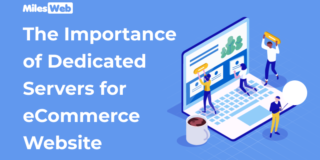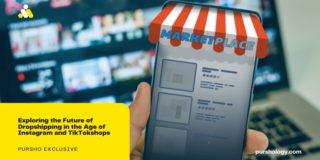We recently caught up with Paul O’Donoghue, VP Solution Engineering at Uberall, a software company that helps “deliver a memorable ‘Near Me’ Brand Experience — from online interactions to offline sales”, to find out more about his role, and how it has been impacted by Covid-19.
Please describe your job: What do you do?
As Vice President, Solution Engineering, I’m responsible for the continued innovation of customer solutions, helping businesses and brands to connect to customers offline, by maximising their online presence. I look after four teams, covering everything from technical consulting and market analysis to best practices for local search visibility, supporting our customers on a global remit.
How has your typical day been impacted in the short term by the pandemic?
My day looks very different to the pre-Covid days. For one, I have not travelled since the 11th of March and my last expenses transaction was for a coffee at Heathrow Terminal 5! I would normally be in two or three different European countries every week – for meetings with customers and colleagues in various offices – so I have had to make some dramatic changes to the way I’ve been working. One of the most obvious is being at home more often – and not having to get up at 4am, three to four times a week to travel to an airport – which my children love, but I do get under the feet of my partner sometimes!
There has also been a definite paradigm shift in the way businesses are operating and the B2B space has now adopted video conferencing as the norm. For example, I had a call last week with a global retail brand, with eight people in the meeting, from four different countries, and whereas previously I and at least one other colleague would have had to travel to the customer’s office for an in-person meeting, it was perfectly normal for us all to be on a video call. The thought of being face-to-face again is a strange one, especially considering all parties achieved the desired objectives during that call as we were all more prepared and co-ordinated. Most importantly, the post-call actions were addressed immediately, with none of the usual office distractions or busy airport departures lounge to get in the way.
Indeed, I’ve noticed that the productivity of my teams has only been positively impacted by remote working, and we’ve also become a lot closer even though we’re all working in different locations. We are spending more time speaking and engaging with each other to ensure everyone has the right support, and our virtual watercooler check-ins are doing a world of good.
What trends have you seen in the last few weeks in your sector?
We’ve seen global brands responding to the current uncertain market conditions in a myriad of ways, including a massive acceleration in digitalisation to match the boom in virtualisation in all areas of life, and a shift to more tactical, short-term marketing to keep pace with the ever-evolving coronavirus situation.
Covid-19 has also greatly affected the consumer ‘near me’ search. With everyone searching online for products and shops open near them as they limit trips outside, being found by consumers has never been more important for brands and businesses. In recent weeks, the likes of ‘eat out to help out near me’ and ’50% off restaurants near me’ have skyrocketed, with the latter going up over 4000%. We’ve also seen brands using innovative ways to continue attracting customers, such as showing a real-time inventory online or displaying a Google’s new ‘curbside pickup badge’ in their local inventory ads.
Online tools such as reviews, business listings and social media have also been playing a crucial role in helping connect brands with offline customers and in improving their ‘near me’ brand experience. Google My Business, for example, is a vital digital platform for both SMBs and multi-location brands to help them direct consumers to offline business information and locations, as well as increasingly facilitating online transactions and e-commerce activity in response to changing customer behaviour.
What are your favourite tools and techniques to help you get your work done at the moment?
Google Drive, Slack, Google Hangouts, Slack, Gmail, Slack, Google Docs, Slack, Google Sheets….. did I mention Slack? Collaboration has been extremely high and enabling it quickly and efficiently is crucial. We have numerous people working on RFPs and various solutions for customers, which has driven the desire to utilise our Google suite of tools and become familiar with them in new ways. I was using these tools previously, but never as much as now.
Getting into a routine has also been important. I am used to remote working, but not at home. Getting out of bed and not being too distracted by the kids or the dog all day is hard, but at least it’s now acceptable to see parts of your home life walking through the background of a video call, or even being actively involved! Establishing a routine and house rules for home working when the family is present is key. Rule number one: if the study door is closed, I am on a call. Do not enter…
Apart from that, good coffee, making time for your own watercooler breaks, and getting away from the screens for short periods of time is good for the mind.
Which companies have impressed you during the pandemic?
Mine! Uberall has been fantastic. We now have a company policy of ‘Work From Anywhere,’ so employees in our offices from San Francisco to Berlin can work from wherever they like. As a result, we’ve seen increased productivity, continuation of great customer success and more importantly, a bond of trust has been established across the business, and we can all be aligned and driven to the same goals, even if we are not in the same office every day.
There are also many other companies that have adapted to make the best of this situation. My main admiration and support have been towards the numerous businesses that have been able to manage ways to keep staff on the payroll and not simply taking the easy route of layoffs and redundancies. Although, as we come out of the protected and assisted period of furlough, I think we will start to see more and more of the commercial damage the pandemic has had on the economy, and we must hope that the positive ways in which companies have responded will lessen the impact.
What changes are you making to help your brand connect with how people are feeling and experiencing the pandemic?
We’ve been helping customers and colleagues alike to make it through these strange times. As a SaaS technology company with a recurring revenue model, we’ve been working with our customers to make sure we can support them through this difficult period. We’ve been listening to them closely and working within the requirements of business and geographic challenges to ensure that we continue to support our customers in the best way possible.
For our colleagues, as well as the ‘Work From Anywhere’ policy, which will be extended beyond Covid-19, we’ve also been doing a lot to ensure that we all stay connected and maintain strong relationships. Management has been taking part in regular, very popular ‘town hall’ meetings, teams are having daily updates and we have daily and weekly one to ones. Then there are a number of Slack groups and video forums, including daily breakfasts and lunches, virtual drinks, yoga and wellbeing classes, group and company-wide events and challenges… you name it, we have a group or forum for it! Uberall has been tremendous during this period to ensure a happy and healthy workforce.
What advice would you give a marketer right now?
Marketing today is a two-way conversation with your customers and is about listening to what they have to say about the services you provide, and acting on this feedback to learn and grow as a company. Today, with the coronavirus crisis propelling digitalisation, this is a conversation that happens mainly online, and it’s vital that businesses provide customers with the tools and platforms to enable this interaction.
Indeed, technology now touches nearly every stage of the consumer journey, and bricks-and-mortar businesses, big and small, need to make sure their business is mastering every digital touchpoint, from online business listings and social media to online reviews, especially as much of B2C interaction is still happening online in the wake of the coronavirus pandemic.
Online presence and technology solutions will enable physical businesses to survive through and beyond Covid-19. Technology tools – like Uberall’s cloud platform – allow businesses to manage online presence for tens or even hundreds of locations. From social media to online reviews, organisations must look to understand how technology can bring them closer to their customers, allowing them to see how they can adapt their goals to match their customers’ needs and desires. This ability to evolve will also put them in good stead in the ever-changing coronavirus landscape.
What does long term planning and strategy look like now at your brand?
We always like to think ahead at Uberall whilst also ensuring that any of our plans have the flexibility to adapt to any unforeseen circumstances. Our best practices – and we encourage the same of our customers – include staying resilient by being agile with marketing plans, changing focus, and being responsive to market conditions; building and maintaining a strong online presence; and engaging with customers on all available channels, virtual and in person.
We’re also cognisant about what these changes mean for the future of marketing. For example, organisations will need to have a stronger focus on strengthening consumer trust to build brand loyalty, especially during times of crisis; and global brands will need to reach out to customers at a local level, as – fuelled by the converging of online and offline during Covid-19 – consumers expect brands to live up to their global promise at a local level.
Local SEO Best Practice Guide





